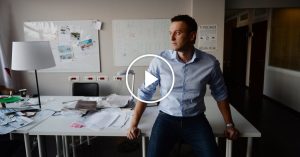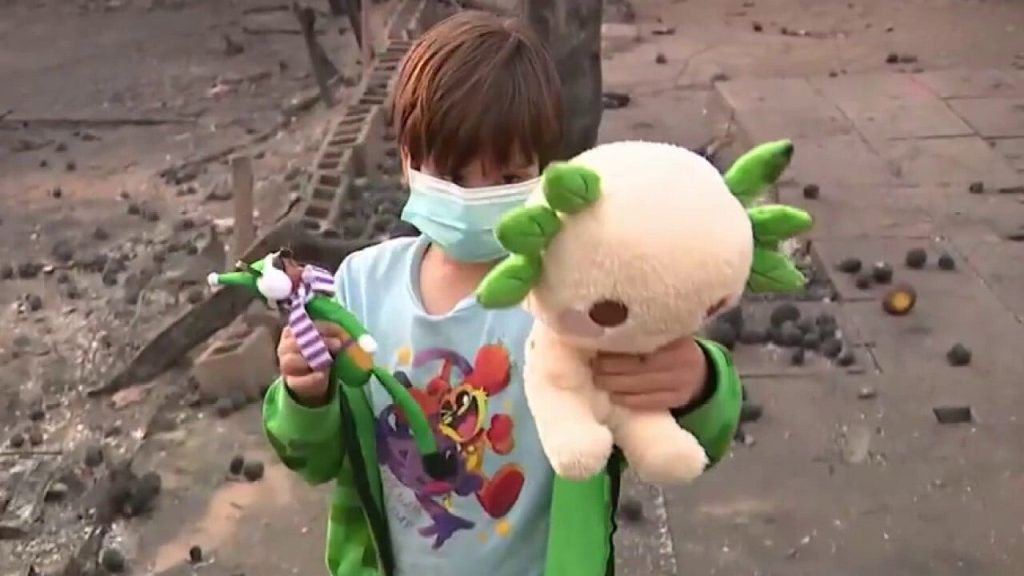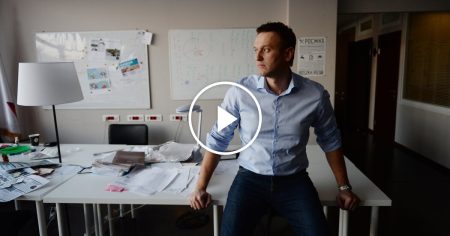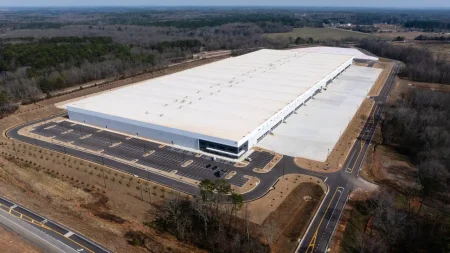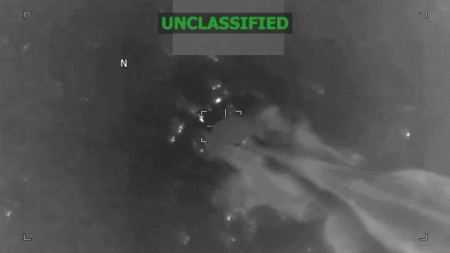The Southern California wildfires continue to rage, leaving a trail of devastation in their wake. Homes and businesses have been reduced to ashes, forcing thousands to evacuate and grapple with the immense loss. While the stories of celebrities losing their luxury homes and vehicles have garnered attention, the plight of ordinary families, like the one from Altadena, underscores the true human cost of these disasters. Their story, captured in an interview with Fox 11, poignantly illustrates the indiscriminate nature of the inferno, which consumes not only structures but also cherished memories and the sense of security that home represents.
The young boy from Altadena, clutching the remnants of his parents’ bicycles, stands as a symbol of resilience amidst despair. He recounts the chaotic moments leading up to the evacuation, the sudden power outage, the hurried departure with only a few essentials. The loss of his prized 3D printer, a symbol of creativity and innovation, is a particularly poignant detail. His simple words, “It was so special to me,” encapsulate the profound emotional impact of losing something deeply valued. His desire to return to the site of his former home, to confirm the extent of the damage, speaks to the human need to bear witness to loss, to process the reality of what has transpired. The image of the destroyed chimney, once a conduit for Santa Claus’s magical arrival, now a stark reminder of what has been taken, adds another layer of poignancy to the family’s ordeal.
The mother’s social media post provides further insight into the family’s experience. The new 3D printer, a long-awaited arrival, represents the aspirations and dreams that have been abruptly shattered. Her account highlights the speed with which the fire engulfed their neighborhood, leaving little time to salvage possessions. The family’s gratitude for finding shelter contrasts with the overwhelming pain of losing everything they owned. Her words, “While that is true, it doesn’t take away the heartbreak of loss,” capture the complex emotions that accompany such devastating events. The family’s story resonates with thousands of others who have faced similar losses in the face of the relentless wildfires.
The Eaton Fire, burning in the Pasadena-Altadena area, is just one of several blazes ravaging the region. These fires, fueled by strong Santa Ana winds, have consumed vast tracts of land, threatening thousands of homes and businesses. The scale of the destruction is staggering, with nearly 30,000 acres burned and a growing number of structures at risk. Firefighters are battling tirelessly to contain the flames, but the challenging terrain and weather conditions make their task incredibly difficult. The financial toll of these fires is also expected to be immense, with insurers bracing for potentially the highest payouts in state history.
The wildfires serve as a stark reminder of the vulnerability of communities in fire-prone areas. The combination of dry vegetation, strong winds, and increasingly frequent heatwaves creates a volatile environment ripe for disaster. The rapid spread of these fires often leaves residents with little time to react, forcing them to make split-second decisions about what to save and what to leave behind. The aftermath leaves a landscape scarred by fire, with homes reduced to rubble and the air thick with smoke. The emotional and psychological impact on those who have lost everything is immeasurable.
The recovery process will be long and arduous. Families will need to rebuild their homes, replace their belongings, and cope with the emotional trauma of the experience. The support of communities, government agencies, and non-profit organizations will be crucial in helping those affected get back on their feet. The wildfires also underscore the urgent need for proactive measures to mitigate the risk of future disasters, including improved forest management, stricter building codes, and greater public awareness of fire safety. The stories of those who have lost everything serve as a powerful call to action, urging us to address the underlying causes of these devastating events and to work towards creating a more resilient future.
